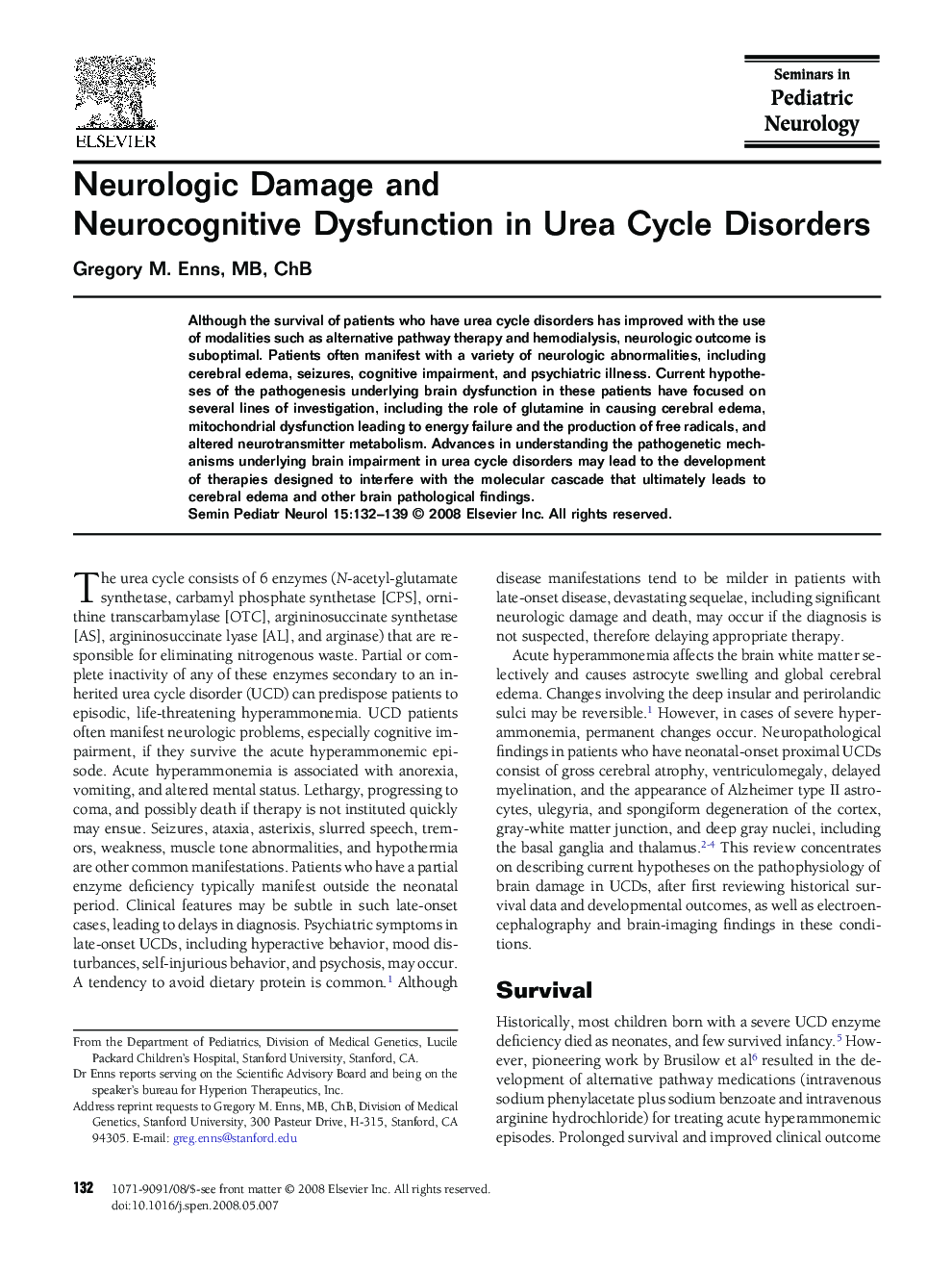| Article ID | Journal | Published Year | Pages | File Type |
|---|---|---|---|---|
| 3091106 | Seminars in Pediatric Neurology | 2008 | 8 Pages |
Abstract
Although the survival of patients who have urea cycle disorders has improved with the use of modalities such as alternative pathway therapy and hemodialysis, neurologic outcome is suboptimal. Patients often manifest with a variety of neurologic abnormalities, including cerebral edema, seizures, cognitive impairment, and psychiatric illness. Current hypotheses of the pathogenesis underlying brain dysfunction in these patients have focused on several lines of investigation, including the role of glutamine in causing cerebral edema, mitochondrial dysfunction leading to energy failure and the production of free radicals, and altered neurotransmitter metabolism. Advances in understanding the pathogenetic mechanisms underlying brain impairment in urea cycle disorders may lead to the development of therapies designed to interfere with the molecular cascade that ultimately leads to cerebral edema and other brain pathological findings.
Related Topics
Life Sciences
Neuroscience
Developmental Neuroscience
Authors
Gregory M. MB, ChB,
